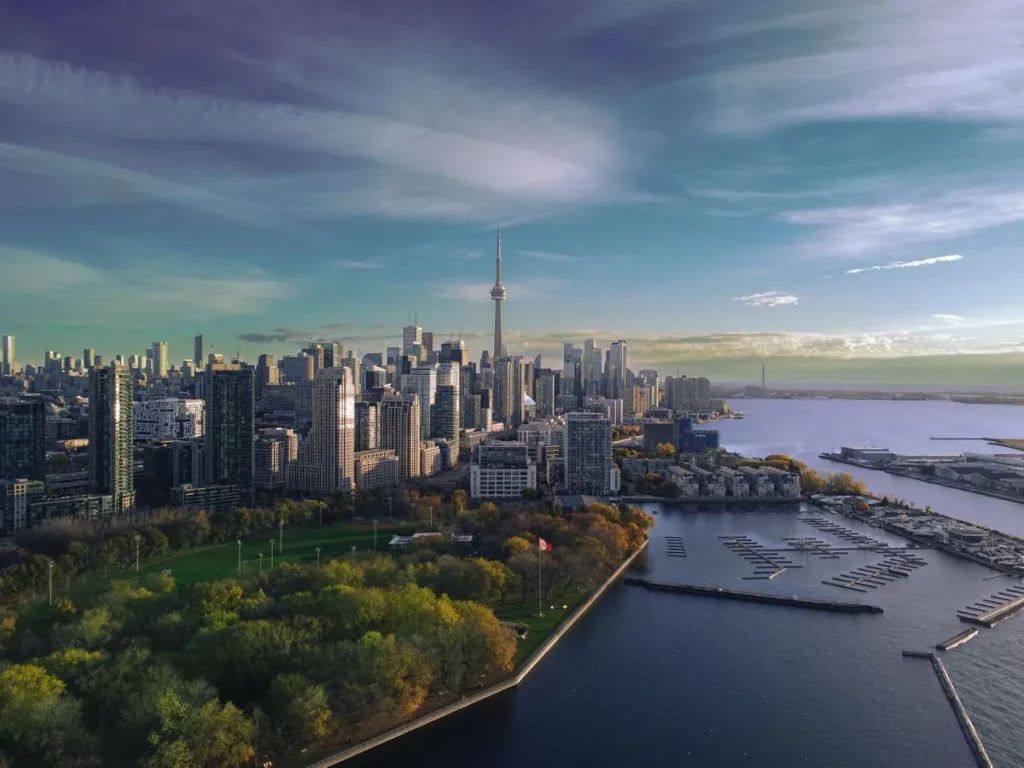
Toronto is rapidly emerging as the next big climate tech hub in North America. While California and New York have been at the forefront of climate ambition, Canada has quietly taken a different approach. Instead of relying solely on state-level action, it’s embracing a national priority for tackling climate change.
One area where Toronto stands out from other hubs is its deep well of scientific talent, paired with a globally recognized tech ecosystem, world-class universities and a steady hand of governance that prioritizes environmental stewardship. This combination has allowed the city to seamlessly merge sustainability into community action, design, and even culture.
Firstly, let’s discuss geography. Climate models are increasingly indicating that the Great Lakes region could be a climate haven, with its abundant fresh water, reduced exposure to hurricanes and droughts, and projected long-term livability. It’s imperative not just for where people will reside but also where talent moves, businesses set up shop, and governments can take bold policy actions.
Moreover, Toronto is Canada’s largest tech hub, boasting over 24,000 tech companies and nearly 300,000 workers. The city has successfully created a massive number of new jobs, with the highest increase in North America during the period between 2018 to 2023.
What sets Toronto apart from other cities is its integrated focus on climate innovation. Institutions like the University of Toronto, with its newly established $60 million climate institute, are driving cutting-edge research and entrepreneurship. The MaRS Discovery District has evolved into a massive 7-million-square-foot innovation hub housing numerous climate tech firms and scale-ups.
Toronto is not merely creating cleantech companies; it’s cultivating them through innovative accelerators like the Creative Destruction Lab. This platform has become one of the world’s most influential for science-based startups, with climate and hard-tech at its core. The city is generating worldwide players in climate innovation like energy storage pioneers Hydrostor, renewable energy developers Northland Power, and reforestation automation company Flash Forest.
Furthermore, Toronto boasts a robust financial system that supports decarbonization, circularity, and adaptation efforts. Funds like ArcTern Ventures, Climate Innovation Capital, and Amplify Capital are located here and aggressively focusing on reducing emissions.
What sets Toronto apart from other cities is its governance. The municipal government doesn’t merely set targets; it’s actively taking steps to meet them. It has already reduced greenhouse gas emissions by 41% below 1990 levels and is poised to reach a staggering 45% reduction in the next few years.
Its TransformTO plan targets net-zero carbon emissions by 2040, which puts it among the most ambitious city-level goals in North America. This commitment includes mandatory green building codes, investments in public transportation electrification, and substantial backing for regional enablers like The Atmospheric Fund that supports projects such as deep energy retrofits, net-zero demonstration sites, and more.
Toronto is not only transforming itself but also becoming a magnet for climate solutions worldwide.
Source: www.forbes.com


